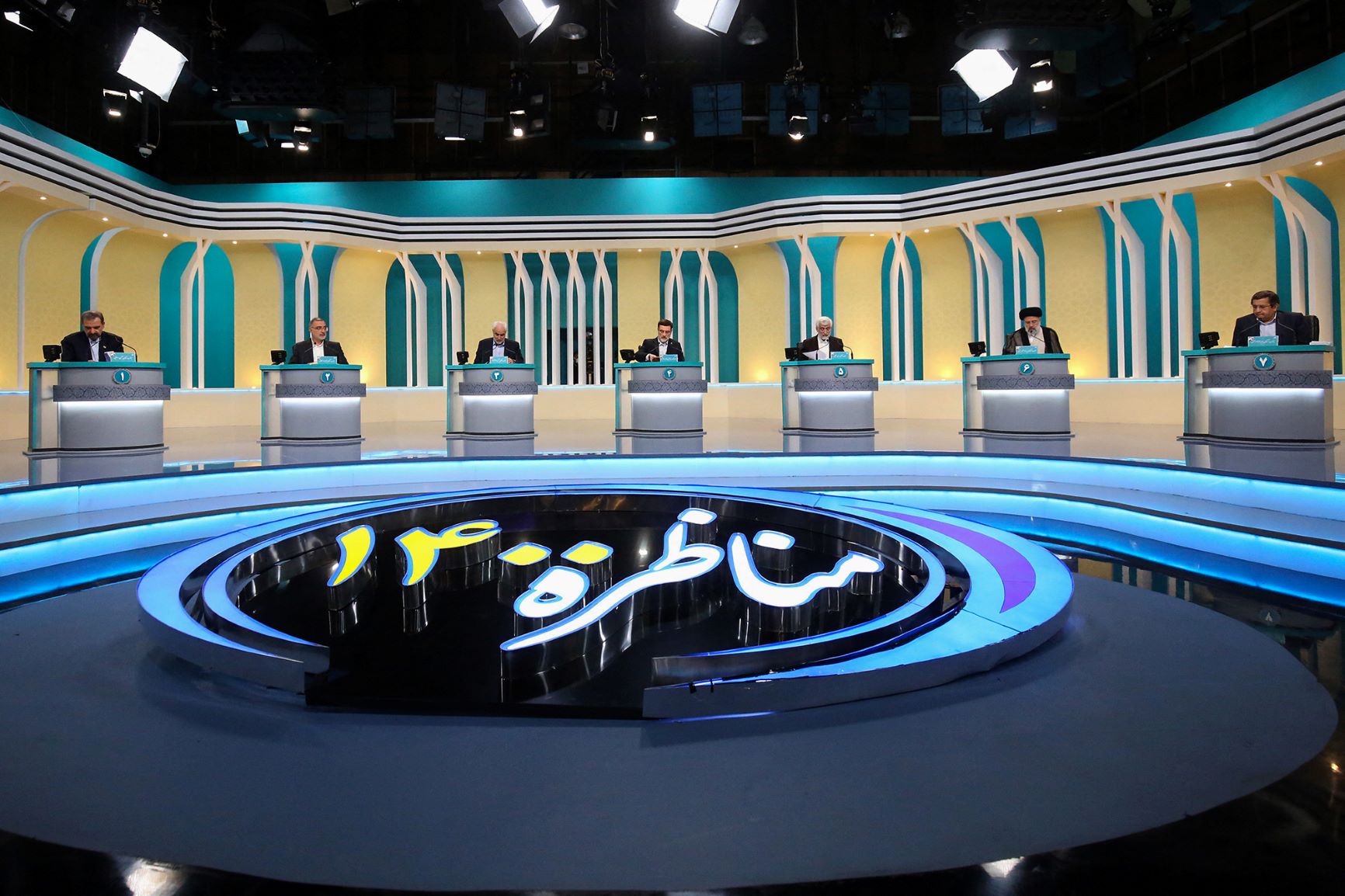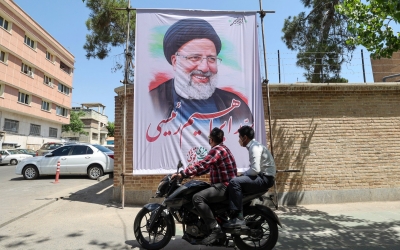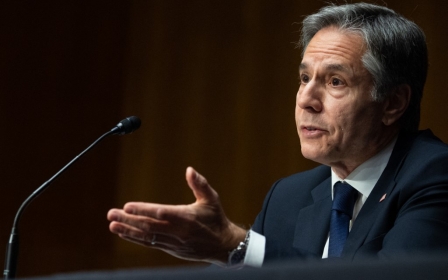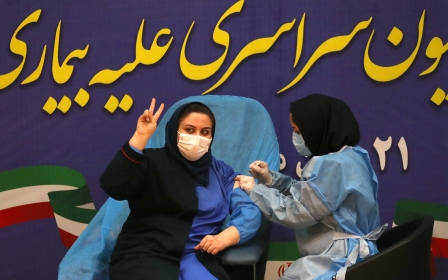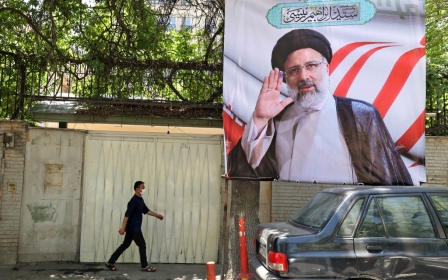Iran elections: Voters plan boycott over lack of choice
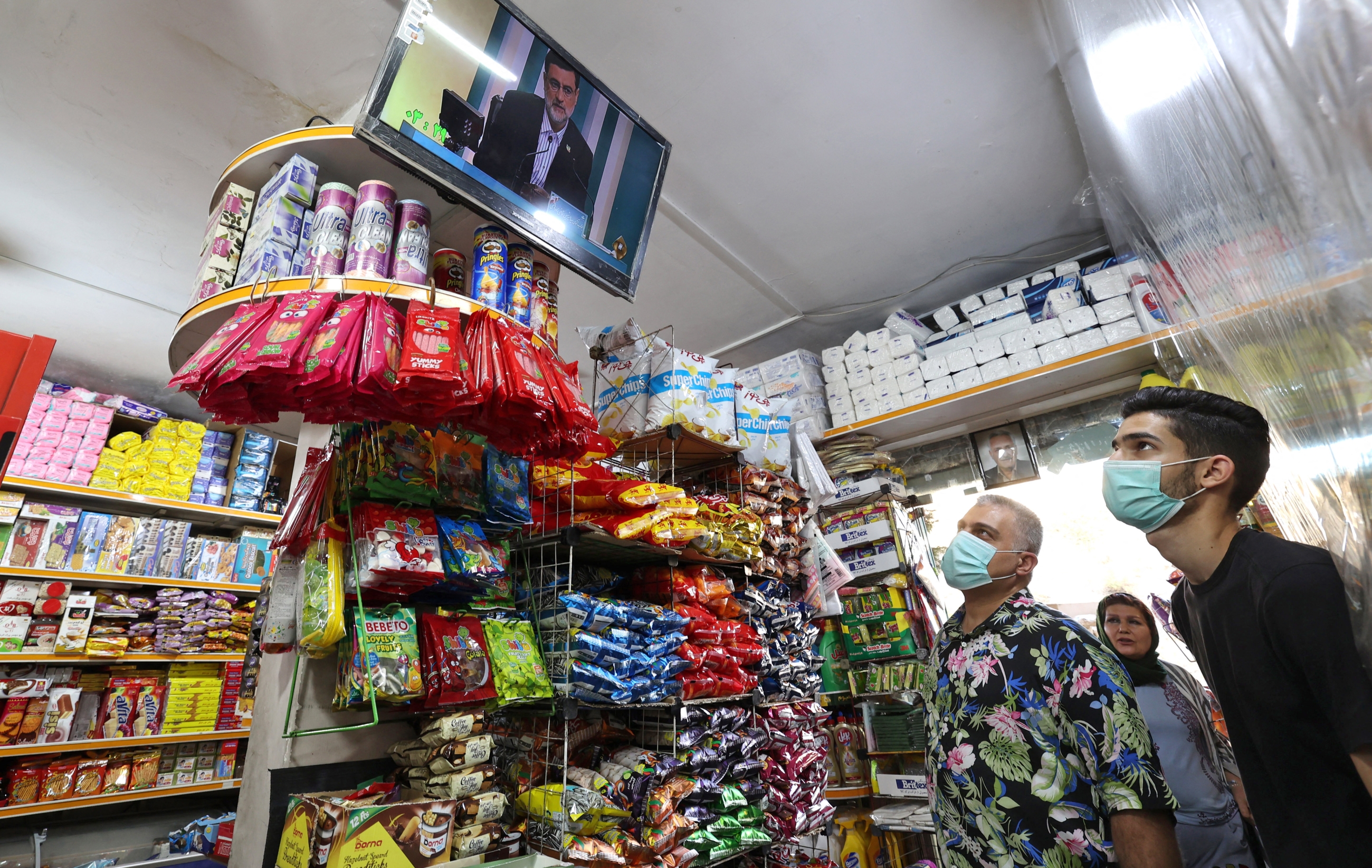
With just a week to go before Iran holds its presidential elections, a key phrase has been circulating among much of the electorate: "There is no way I will vote."
Across the Islamic Republic, there appears to be a surge of apathy towards the 18 June poll, with many planning to stay home rather than take part in a process which they see as unfair, unrepresentative and unlikely to produce any substantial change in their lives.
Elnaz, a 27-year-old architect, said going to the ballot box would be an insult to the Iranian people.
"Absolutely I will not vote. Who can vote? Why should we vote at all? What happened after we turned out to vote in the elections for so many years?" she said.
'Absolutely I will not vote. Who can vote? Why should we vote at all? What happened after we turned out to vote in the elections for so many years?'
- Elnaz, architect
Elnaz is just one of many Iranians who hold this view.
New MEE newsletter: Jerusalem Dispatch
Sign up to get the latest insights and analysis on Israel-Palestine, alongside Turkey Unpacked and other MEE newsletters
The country's economy has buckled under tough US sanctions, which previous President Donald Trump imposed after announcing his country’s withdrawal from the 2015 nuclear deal on 8 May 2018.
High inflation, rising poverty levels, and widespread corruption are leading to increasing anger and frustration across the country with a political class that they see as incapable of addressing their needs.
"I do not see anyone around me who wants to vote - going to the ballot box is just like an insult to yourself," said Elnaz.
'Lesser of two evils'
Much of the apathy towards the upcoming polls stems from the massive disqualification of candidates by the Guardian Council, a body whose 12 members are composed of six senior clerical officials appointed by Iran's supreme leader, and six jurists who are appointed by parliament after being proposed by the head of the Judiciary.
The council disqualified almost all the key moderates and reformists who could challenge the frontrunner conservative Ebrahim Raisi.
Potential rivals such as veteran moderate politician Ali Larijani and the current first vice-president Eshaq Jahangiri were barred from running in the elections.
Even before the announcement of the Guardian Council's list of qualified candidates, the turnout was estimated to be very low. According to one of the most trusted polls in Iran, which was conducted between 17-20 April, only 43.7 percent of Iranian citizens said that they would definitely go to the ballot box.
The election-vetting council only approved seven mainly conservative candidates. After the list of qualified candidates was released, according to the Iranian Students Polling Agency (ISPA), the rate of people who previously said they would definitely vote declined to 37.7 percent.
"These people are tired of choosing between a lesser of two evils for years," said Mahmoud, a retired teacher.
“These games no longer work. They cannot scare people with someone like Ebrahim Raisi to go and vote for his rival.”
He further said that “in this round of elections, the establishment has announced the game is over and basically no rivals are remaining in the race."
Sara, a 29 years old bank employee in Tabriz, said that by boycotting the elections, "we are showing to the world that the Islamic Republic is not legitimate to the Iranians.
'These games no longer work. They cannot scare people with someone like Ebrahim Raisi to go and vote for his rival'
- Mahmoud, a retired teacher
“A significant portion of those who do not want to vote see their decisions as a civil campaign and believe that with this action either the political system will notice their dissatisfaction or the international community will realise that Iranians are not happy with their political system,” she explained.
Others have been affected by the government's incompetence and lack of transparency over the country's problems.
Mohammad Reza, 35, who has a master’s degree in food engineering and is from Isfahan in central Iran, cited the government's handling of the shooting down of a Ukrainian airliner in January 2020, which led to the death of all 176 people on board.
This deadly attack on a passenger plane came hours after Iranian missiles struck two US bases in Iraq in retaliation for the killing of Iran's top general, Qassem Soleimani.
According to Iranian official accounts of the tragedy, the Islamic Revolutionary Guard Corps (IRGC) air defence mistook the passenger plane for an aggressive flying object. Tehran initially denied the allegations for two days, claiming the plane had crashed due to a technical failure. But after increasing international pressure, Iranian military officials admitted in a statement on 11 January that they had shot down the plane with two missiles.
"We have tried for years to keep our hope alive, but in the end we see that this was just a dream. The establishment has shown in various cases that it has no intention to change and carry out reforms," said Reza.
"Tragedies such as the shooting down the Ukrainian plane and their insistence on telling lies the following days disappointed me with this political structure forever."
Bloody November
Growing public anger against the government has seen outbursts in recent years.
In November 2019, the Iranian government abruptly tripled the price of gasoline from 10,000 rials to 30,000 overnight.
Under the changes, which stirred up public outrage, the government decided to give each private car 60 litres at the price of 15,000 rials each. Any extra purchases over that limit would cost 30,000 rials per litre.
'In the deadly protests in November, so many young people were killed for nothing...what did the establishment do to them? It welcomed them with guns and bullets. Then you ask me if I will vote or not? A question like that is nothing but an insult'
- Reza, 45
Demonstrations broke out across the country, which were brutally put down by the state. According to Reuters estimates as many as 1,500 Iranians were killed by military and security forces in a matter of a few days.
The Iranian authorities dismissed the death toll, describing the Reuters reports as fake and labelling the protesters rioters. However, they refused to officially announce the number of killed in protests for months.
The spillover of protests to small cities, which have largely been calm over the past few decades and have not witnessed any serious signs of dissent, indicates rising tensions.
"In the deadly protests in November, so many young people were killed for nothing, Why? Just because they were angry about petrol price hike overnight. What did the establishment do to them? It welcomed them with guns and bullets," said Reza, 45, who works in a metalworking lathe workshop in the northern province of Gorgan
"Then you ask me if I will vote or not? A question like that is nothing but an insult to me."
'Passionate' turnout?
Under such circumstances, even the news of the progress made in talks in Vienna on the revival of the nuclear deal seems to be having little effect on encouraging people to go to the ballot box.
Nevertheless, many political figures appear to view a low turnout as unproblematic.
In recent weeks, senior conservative figures have commented that a high and “passionate” turnout could lead to the "wrong choice" being made by the electorate.
"The result of the passionate election is a wrong choice as the events like the ones in the streets in previous years showed," Abdul Reza Mesri, the hardline deputy speaker of parliament told Iranian state television on 27 May in reference to the protests that followed the controversial 2009 presidential election.
Earlier, Abbas-Ali Kadkhodaei, a spokesman for the Guardian Council, said that a low turnout would not affect the legitimacy of the election.
"Although the general and political expectation of the election is that turnout would be high, low turnout would not create a legal problem," Kadkhodai said last month.
Many senior figures appear to have accepted that the 18 June election will see the country's lowest voter turnout in many years - but as this is likely to mean victory for a conservative candidate, they are apparently largely unconcerned.
This article is available in French on Middle East Eye French edition.
Middle East Eye delivers independent and unrivalled coverage and analysis of the Middle East, North Africa and beyond. To learn more about republishing this content and the associated fees, please fill out this form. More about MEE can be found here.


